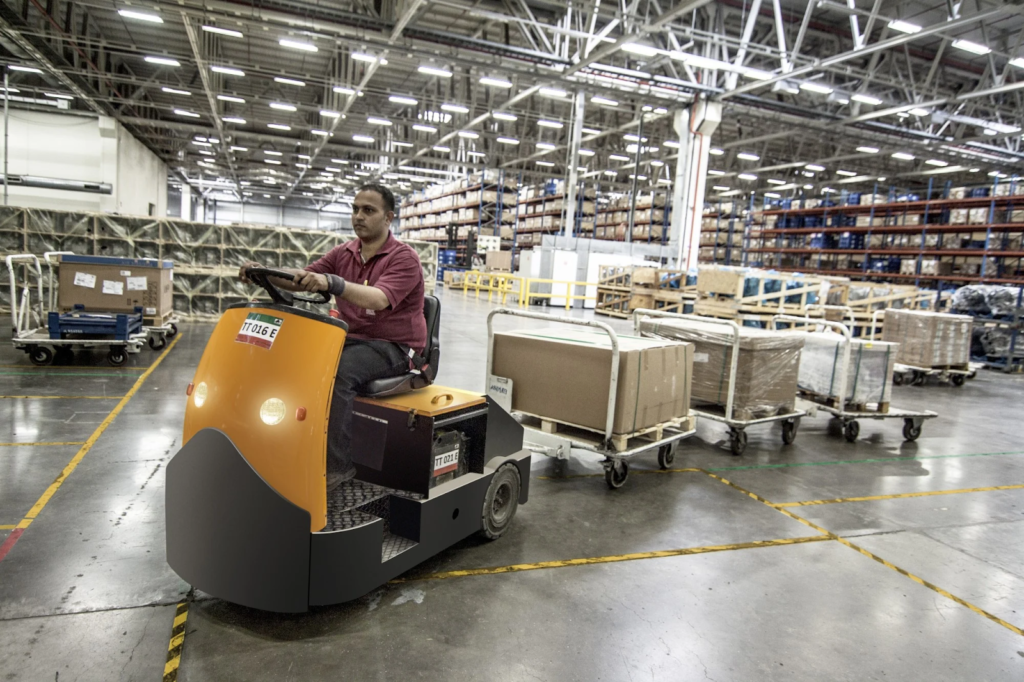Efficient warehouse operations are the backbone of successful supply chain management. At the core of these operations is implementing effective material handling systems. By seamlessly moving goods from one point to another within a warehouse, these systems optimize space usage and accelerate order fulfillment. As businesses strive to meet growing consumer demands, understanding the pivotal role of material handling systems becomes essential in maintaining a competitive edge. Let’s explore how these systems can boost productivity in warehouses.
Optimized Use of Space
Material handling systems are crucial in maximizing the available space within a warehouse, thus optimizing the operational layout. By utilizing advanced storage solutions such as pallet racking and shelving units, these systems effectively organize goods, freeing up valuable floor space. This organization allows for a higher density of storage and facilitates easier access to inventory, cutting down on retrieval times.
Automated storage and retrieval systems (AS/RS) are particularly beneficial in high-density storage, as they can stack and retrieve goods efficiently without the need for wide aisles typically required by forklifts. As a result, businesses can make use of material handling systems to achieve a more strategic utilization of space, allowing for the accommodation of a larger inventory within the same footprint. This optimized space management is critical in enhancing a warehouse’s operational flow and productivity.
Increased Efficiency and Speed
Material handling systems significantly improve efficiency and speed by streamlining the movement of goods within a warehouse. Automated systems like conveyor belts and automated guided vehicles (AGVs) reduce the need for manual labor, enabling faster transport of items with minimal human intervention. This automation decreases the time it takes to move products from storage to shipping areas, thus accelerating the entire order processing timeline.
Additionally, these systems are designed to handle a large volume of goods simultaneously, which minimizes bottlenecks and enhances workflow continuity. By ensuring a smoother and quicker movement of goods, material handling systems allow businesses to fulfill orders promptly, meeting customer expectations and improving overall operational productivity.
Improved Inventory Management
Efficient material handling systems significantly enhance inventory management within a warehouse setting. Businesses can maintain accurate real-time inventory tracking by integrating technologies such as barcode scanners, RFID systems, and warehouse management software (WMS). This capability allows for precise monitoring of stock levels and ensures that items are correctly logged during storage and retrieval.
Moreover, these systems help identify inventory discrepancies such as overstocking or stockouts, enabling timely corrective actions. Enhanced inventory management not only aids in maintaining optimal stock levels but also reduces the likelihood of errors and misplaced goods. By improving inventory accuracy and visibility, material handling systems ensure businesses can better predict and respond to demand fluctuations, minimizing downtime and ensuring customer orders are fulfilled accurately and efficiently. This results in smoother operations and an overall boost in warehouse productivity.
Enhanced Safety and Security
Material handling systems are designed with safety in mind, prioritizing the well-being of workers and goods alike. With features such as protective barriers, warning signals, and sensors, these systems promote a safe working environment for employees. By minimizing the risk of accidents or injuries caused by manual material handling, businesses can reduce downtime due to worker absences and medical expenses.
Moreover, automated systems also contribute to improved security within warehouses. With controlled access points and real-time inventory tracking, businesses can closely monitor all facilities’ activities. This surveillance helps prevent theft or damage to goods, further enhancing operational efficiency.
Streamlined Processes
Incorporating material handling systems into warehouse operations leads to streamlined processes and standardized procedures. These systems eliminate excessive manual handling of goods, reducing the likelihood of human error in order fulfillment. Through automated workflows, businesses can ensure that all tasks are completed accurately and efficiently, minimizing the need for rework or corrective actions.
These systems also promote seamless communication among various departments within a warehouse, fostering a more unified workflow. Material handling systems enhance coordination between operations, sales, and customer service teams by offering real-time updates on inventory levels and order processing. This process optimization not only boosts productivity but also elevates customer satisfaction.
Scalability and Flexibility
Material handling systems offer scalability and flexibility in warehouse operations as they can adapt to changing business needs. By modifying storage configurations, these systems allow businesses to accommodate different types of goods and adjust to fluctuating inventory levels. Furthermore, as companies grow and expand their operations, material handling systems can be easily integrated with new technologies or upgraded to meet evolving demands. This scalability and flexibility enable efficient handling of changing customer demands and ensure that warehouse productivity remains high even during growth.
Implementing material handling systems is crucial for any warehouse aiming to boost operations. Leveraging advanced technology, these systems enhance productivity and efficiency, providing a strategic edge in the industry. They help warehouses meet the growing demands of modern supply chains. As businesses evolve, investing in strong material handling solutions is essential for maintaining competitiveness and ensuring success.






